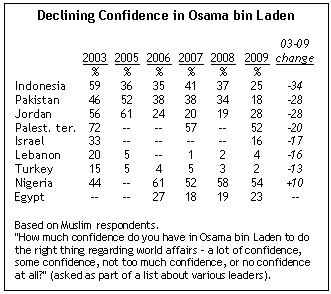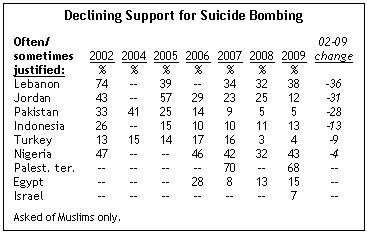Here’s my attempt to say something that hasn’t been said before in Bin Laden. It’s going to be hard, because one problem with an extremely rapid information economy is that pretty much every idea gets said (in usually a factually incorrect and superficial way) right way — and I’m going to contribute to that I guess.
It’s already very common to see articles saying that killing Bin Laden doesn’t really do anything to make the U.S. more secure because terror groups will continue operating, like a hydra, even though one of its many heads has been cut off.
Ok fair enough, but this ignores what I think is really quite a mind boggling conclusion: the U.S government actually did a really good job with this and our DETERRENCE has been boosted immeasurably. Let’s pretend that for every crime that you committed, you would be punished in ten years, with a probability of 1 (certainty). This would drastically reduce crime. There have been a ton of studies confirming that certainty is a huge factor.
So, the U.S., by keeping its political eye on the prize as it were, has manifested an unprecedented ability to connect an action with a counteraction. Many political decisions have no such bite because the tides of politics comes and goes, a subsidy is switched on and then back off. One group puts in a tax break and another takes it right back. The government of any country rarely sets a goal so ruthlessly in mind and then so effectively pursues it (is the space race a counterexample?).
In the Bin Laden kill, the U.S. kept this intensity and focus over the course of a decade and two presidencies, AFTER George Bush blew it in Afghanistan (most people know I’m not a partisan, so at least consider believing me when I say I’ve read A LOT about those Afghanistan days, and we really screwed up. We could have probably gotten Bin Laden there and then.) So, what this killing shows is not that the “leader” of Al Qaeda is dead (there is no such thing for Al Qaeda) but rather the the planners and executors of specific actions against the U.S. can expect a certain IMPLACABLE retaliation.
If you’re really following this post, you’re saying to yourself “but Jordan, the sample size here is only 1. No terrorist will make an inductive inference based on n=1 (one instance).” The next terrorist is just as likely to conclude that THEY can get away with things. Wrong, psychology is very powerful here, and all the salient psychological factors play the U.S.’s way in this. What I mean is that the human brain assesses risk very poorly, and it draws on all sorts of irrelevant things to make an assessment of how risky something is. That’s why flying can scare some people, because for all our risk-assessing apparatus knows, we should not be 30,000 feet above the earth. Same goes for would-be terrorists. Sure, you can shoot up some marine barracks or plant some IEDs. That won’t earn you the ire of the entire U.S. military/political establishment, but planning a major operation that succeeds in hurting a lot of Americans is likely to bring to mind vivid images of black men in helicopters coming in the night to shoot you and your closest friends. That is an image that is hard to endure for any length of time. I’m pretty firmly convinced that Bin Laden must have been going insane (he already was in one way) hiding out in his compound, learning about the outside world only through runners and couriers.
Ironically, that is perhaps the most powerful type of TERRORISM available, and the U.S. right now, is its master.
Unbelievably, wikileaks could have really given Bin Laden a clue about our action against him. Does this show that wikileaks doesn’t matter because evil people are too stupid to read it, or does it show rather that some sort of censorship might be really important in this information age.
Also, just read this.


